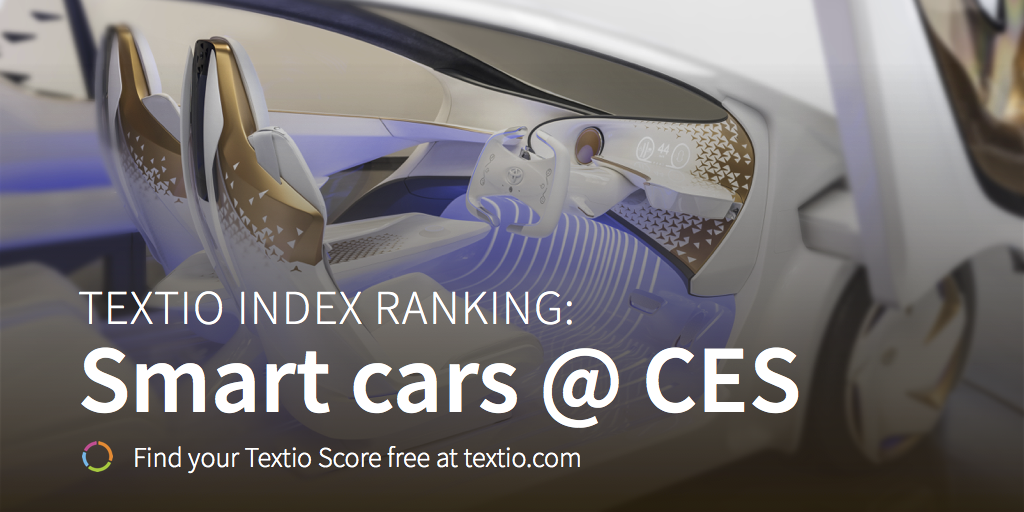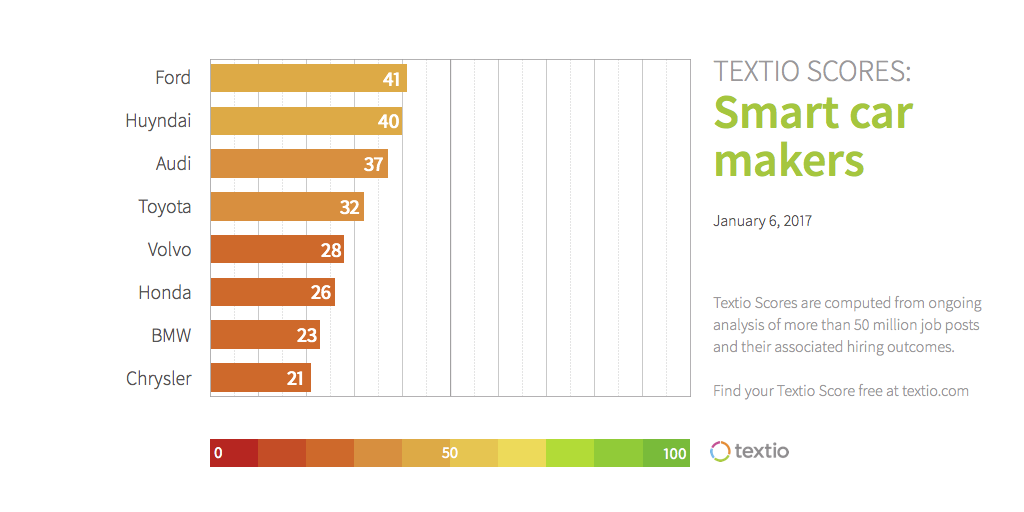Automakers are turning to smart cars — but which one hires the smartest?

Every January we get a glimpse into the future at the annual Consumer Electronics Conference, CES, and this year our sights were set on reinventing the cars. KITT the talking car from Knight Rider is only 30 years old but it is almost a reality.
Ford unveiled a smart car that links to Amazon’s Alexa, Samsung smart watches and WiFi hot spots. The next time your Samsung S3 alerts you that there is a parking space right next to the donut shop, you can ask Alexa to remind you how many calories there are in a donut (about 200), before you pop in. Chip manufacturers Intel and NVIDIA teamed up with automakers Audi, BMW, and Volvo to give their cars better sensors too.
But by far the biggest trend was towards autonomous vehicles. Chrysler, Ford, Hyundai, and Honda all unveiled their next steps to driving without a driver.
If you want to earn a job working on the future of driverless cars, it feels like the options might be limitless. But some of these carmakers are better than others when it comes to how they find the very best employees. In order to find out, we took a look at the major automakers in the Textio Index to see how they rank.

Using over 50 million job listings with outcomes data, Textio has proven that the language you use in a job post changes who applies, which ultimately determines who gets hired. Automakers are no exception. The words you use to recruit people — from your designers to your engineers — measurably affect how you compete for talent.
The first thing you’ll notice is that compared to other industries, Automakers are far below average in hiring performance across the board. The four of the eight automakers surveyed scored in the 20s out of the highest possible score of 100. The highest, Ford and Hyundai squeaked in to the 40s, at 41 and 40 respectively. Check out the full ranking in the chart above before submitting your resume to race towards the future.